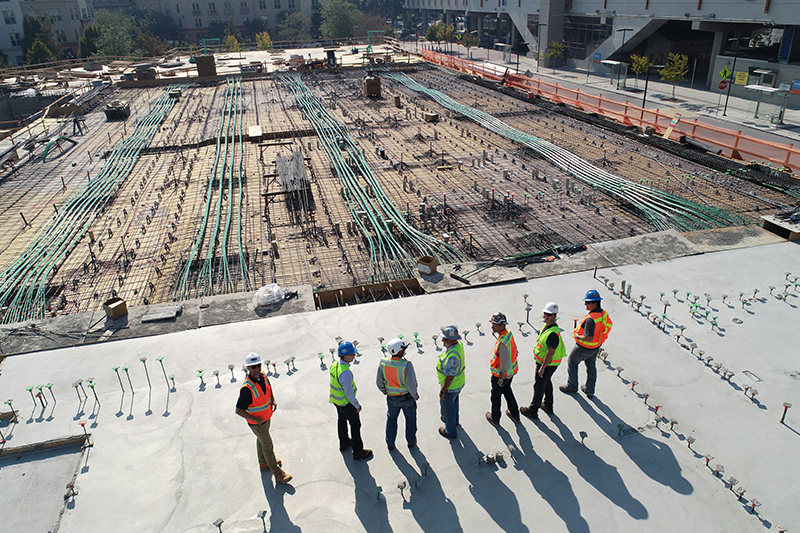Surmounting Hurdles in the Singaporean Construction Sector with HCM Technology
The construction field in Singapore is considerably competitive in the expanding economy of the nation. Not only is it affected by the specific challenges it has, the construction industry is also entangled in some problems that are typical in other fields. When firms are looking for the best quality, Human Capital Management systems (HCM) come as a robust solution to these issues, which then the business becomes more effective and sustainable.

Solo and Team Construction Sector Challenges
The construction industry in Singapore is suffering from standalone problems that are not in other sectors. Nonstop labor shortages are resulting in huge force strains, which in turn have a significant impact on both the timeline and costs. The grunt and physical nature of construction work inhibit the potential for new workers, which is a bigger problem. On top of that, the sector also is obligated to cope with very strict compliance requirements imposed by the government, the struggle with the continuous law amendments. Besides that, construction firms are burdened with managing complicated project issues such as logistics and resource distribution.
Among various areas of Singapore, the issues of tech solutions-integration and data security are common. With the construction sector exploring the digital space, the security of the cyber world becomes more decisive. Further, the uncertainty of the ever-changing economy has become a persistent headache affecting budgeting and resource allocation processes.
The role of HCM in the Construction Impact and Benefits
The adoption of HCM software makes a paradigm shift in the construction site work management. HCM systems are seen as a major tool for addressing and reducing the resultant problems of Passive Rotation, which is a general and pervasive issue in industries, therefore, streamlining the processes of a business.
Heightened rules are basically, HCM systems having compliance management features by their very nature. The automated processing of tracking and updates ensures the country’s laws are adhered to, thus effectively mitigating the risk of non-compliance. This guarantees that construction firms can operate without worries and ensures processes go smoothly.
The payroll issues that are normally unavoidable in the sector are clearly dealt with by the software. The application has built-in tools for calculating payroll for various contributions, like CPF and long service payments specifically for the construction industry. As a result, the admin time is much lower. In addition, the AI in the HCM systems assists in the development of data analytics for more informed business choices.
Safeguarding the confidential information is one of the key problems that HCM systems need to handle through secure and centralized data management. Companies handle their employees’ data securely without leak fears through ISO codes.
HCM Implementation Tips
A proper change management plan is obligatory for the application of the HCM system to succeed. First, organizations should do a targeted needs assessment that will be the basis for selecting the most appropriate HRMS for the firm. This involves assessing the specific needs and challenges the firm faces. The buy-in of employees from different departments is also a step in the right direction as it will promote collaboration and ensure that the system is beneficial to various departments.
Training and support are the most pivotal parts that need not be mentioned. This is because they provide the necessary skills to employees thus they learn effectively how to use the system. Besides having a functioning system that is well designed, the communication that is honest and open is also an important factor for the success of a firm.
Multiable aiM18: Transformative Features That Make Construction HR a Powerhouse
- Rule-based Workflow Engine: Automating manual procedures becomes productive work as administrative duties will lessen.
- Fully Customizable Payroll Formula: Payroll requirements will be adaptable easily without compromising accuracy.
- Intelligent Roster Planning: Appropriate manpower is employed in the most efficient way, synchronizing the resources with the project requirements and compliance checks.
- Powerful Payroll Engines: Payroll calculation speeds up, and payments are correctly made on time.
- Department/Position Sensitive Appraisal: By focusing performance management on particular roles, specific skills upgrade is achieved better.
Endorsements and Compliance: Multiable HCM’s Prestigious Approval
Powered by Multiable HCM, the IRAS sign-off signifies its elite software in the HRMS sector in Singapore. Additionally, it is acknowledged as part of the Auto-Inclusion Scheme (AIS) for Employment Income, certifying it as a trustworthy and compliant mechanism for payroll management and data protection in the construction sector.
What is Multiable HCM?
Multiable HCM is a cloud-native HCM (aka HRMS, HRIS or HR system). With over 6,000 customers, Multiable HCM gains positive feedbacks from customer across different sectors, from manufacturers, distributors, retailers, service providers to NGOs. The renowned no-code approach saves customer a big sum of customization costs and countless hours of implementation man-days.
What is LAIDFU (Let AI Do for You)?
LAIDFU is an AI tool for enterprise to build their own AI agents to perform various business AI tasks.
Proprietary EKP (Enterprise Knowledge Partitioning) technology eases CEO’s concern about trade secret leakage which often occurs in most AI agents / chatbots in the market.
EKP removes the hurdle of business AI adoption by most companies in using sensitive corporate data.
Powered by no-code approach, deployment of LAIDFU incurs far less developers (and development costs) in comparison with other AI tools.
LAIDFU empowers business, with or without an HCM system in place.
Contact us
Error: Contact form not found.